Buddy Holly
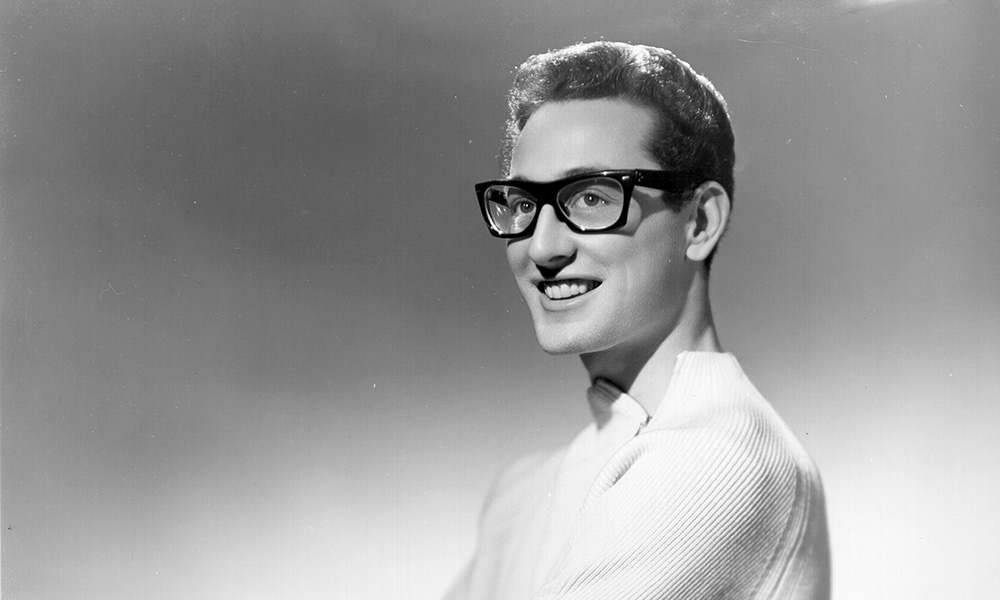

On 3rd Feb 1959, 22-year-old Buddy Holly, the Big Bopper, and Ritchie Valens, aged 17, died in a plane crash shortly after takeoff from Clear Lake, Iowa. The pilot of the single-engine Beechcraft Bonanza was also killed. Holly hired the plane after heating problems developed on his tour bus. All three were traveling to Fargo, North Dakota, for the next show on their Winter Dance Party Tour which Holly had planned to make money after the break-up of his band, The Crickets, in the previous year.
The Winter Dance Party Tour was planned to cover 24 cities in just three weeks and Holly would be the biggest headliner. Waylon Jennings, a friend from Lubbock, Texas, and Tommy Allsup joined the tour as backup musicians. Ritchie Valens, probably the hottest of the artists at the time, The Big Bopper, and Dion and the Belmonts made up the list of other performers.
The grueling tour schedule had taken the acts to the Surf Ballroom in Clear Lake, Iowa the previous night. Due to mechanical difficulty with their chartered bus, the group arrived at Surf Ballroom less than two hours before the performance. The ballroom was packed with over 1500 fans, many of whom had driven hundreds of miles on snow-covered roads to see the stars perform.
Buddy was fed up with the chartered bus with its faulty heater, so before the performance, he asked the Surf manager Carroll Anderson about renting a chartered plane to fly him to his next destination in Moorhead, Minnesota. Anderson knew the owner of Dwyer Flying Service in nearby Mason City whom he contacted to arrange the flight. Anderson was not able to get hold of the owner so he called one of the pilots, Roger Peterson, who agreed to take Buddy plus two others to Moorhead.
After the performance, the group got ready to travel to their next show on the tour bus. Holly boarded the 1947 Beechcraft Bonanza aircraft to Fargo, North Dakota, the nearest airport to Moorhead. Two other members of the group had the option to fly with him at $36 per person. Dion didn’t want to pay, but Waylon Jennings was keen to fly with Buddy, but exchanged his seat with J.P. Richardson because he had a cold. Tommy Allsup was included in the group, but Ritchie Valens offered to flip him for the seat since he was ill. The local host of the Winter Dance Party, Bob Hale, flipped the coin. Ritchie called heads and won the toss. Years later, Tommy Alsup would open a dance club named the Heads Up Saloon to commemorate this life-saving coin toss.
In his 1996 autobiography, Waylon Jennings stated that he was disappointed that he had to ride in the freezing bus, so his parting remark to Buddy was, “I hope your damn plane crashes!” Jennings said this remark has haunted him ever since then.
The plane took off around 1:00 AM from Mason City Airport into a blinding snowstorm and crashed only minutes later in a cornfield, killing all three musicians and the pilot. Because the plane didn’t catch fire when it crashed, no one noticed the wreckage until the next day, about a quarter mile from the nearest country road.
Early reports from the scene suggest the aircraft spun out of control during a light snowstorm. Only the pilot’s body was found inside the wreckage as the performers were thrown clear on impact.
The Civil Aeronautics Board concluded that the primary cause of the crash was pilot error due to the 21-year-old Peterson’s inability to accurately interpret the newly installed Sperry F3 attitude indicator, which he was forced to rely upon in the poor weather conditions. The theory was that Peterson may have read the gyroscope backwards as a result of vertigo and thought that the plane was gaining altitude when it was actually descending.
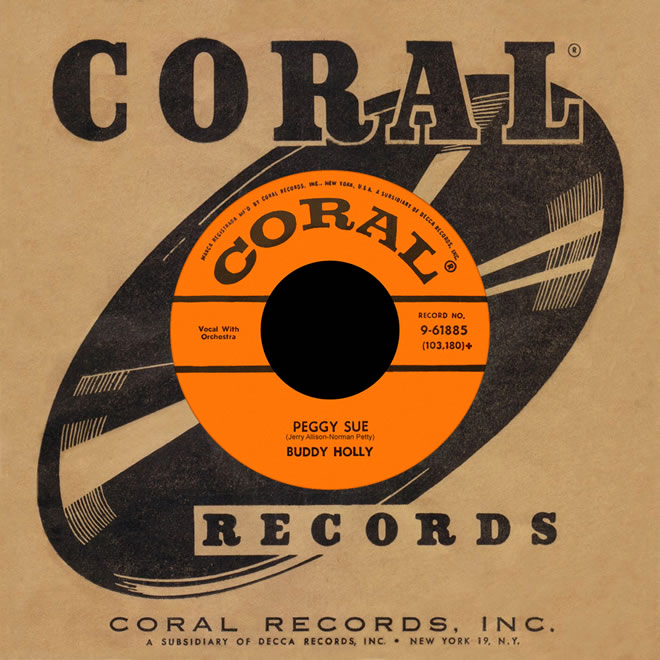

Buddy Holly’s body was buried a few days later on 7 February. Services were held in Lubbock, Texas, at the Tabernacle Baptist Church where over a thousand mourners attended the service.
In 1988, Buddy fan Ken Paquette built a monument to the singers, from stainless steel, and placed it at the crash site where the current owners of the land also planted four trees in memory of the victims.
Holly is often described as the most influential of the early rock and roll musicians, and has been cited as such by John Lennon and Paul McCartney (McCartney owns the publishing rights to Holly’s catalog of songs). The death of Holly is now commonly referred to as “the day the music died” after Don McLean immortalised the tragedy with his 1972 hit “American Pie.” McLean has stated that he first learned about Buddy Holly’s death while delivering newspapers on the morning of February 3, 1959, and in his song uses the line, “February made me shiver/with every paper I’d deliver.”
Important Dates In The Life Of Buddy Holly:
|
22
Aug
2022
Jerry Allison, drummer from American rock and roll band The Crickets, died from cancer age 82. He was the co-writer of their hits 'That'll Be the Day' and 'Peggy Sue', recorded with Buddy Holly. His only solo chart entry on the Billboard Hot 100 was 'Real Wild Child', issued in 1958 under the name Ivan.
|
|
11
Jan
2017
Rockabilly guitarist Tommy Allsup, who narrowly avoided boarding the plane that killed Buddy Holly and the Big Bopper, died aged 85. The musician famously lost a coin toss for a seat on the plane. His place was taken by teen star Ritchie Valens, who also perished when the plane crashed. Allsup went on to become a Grammy-winning musician, who played with Merle Haggard, Roy Orbison and Willie Nelson.
|
|
24
Oct
2016
American singer Bobby Vee died age 73. Vee had 38 chart hits, ten of which reached the Top 20. Vee's recording of 'Take Good Care of My Baby' in the summer of 1961 went to No.1 in the US and No.3 in the UK. Vee's career began in the midst of tragedy. On February 3, 1959, "The Day the Music Died," when Buddy Holly, Ritchie Valens, and the Big Bopper, were killed in an airplane. Vee then 15 years old, and a hastily assembled band of Fargo schoolboys calling themselves the Shadows volunteered for and were given the unenviable job of filling in for Holly and his band at their next gig. Their performance was a success, setting in motion a chain of events that led to Vee's career as a popular singer.
|
|
2
Jul
2015
Buddy Holly's widow, Maria Elena Holly, announced that she had entrusted the publishing rights to her late husband's influential catalogue to the artist's performance rights group, BMG. The company was now authorised to administer royalties worldwide for nearly all of Buddy Holly's recordings.
|
|
7
Apr
2015
The original manuscript of Don McLean's 'American Pie' sold for $1.2m (£806,000) at a New York auction. The 16-page draft had been expected to fetch as much as $1.5m (£1m) at the Christie's sale. McLean said writing the song was 'a mystical trip into his past'. The repeatedly mentioned phrase 'the day the music died' refers to the plane crash in 1959 which killed early rock and roll performers Buddy Holly, The Big Bopper, and Ritchie Valens.
|
|
2
Dec
2014
American saxophone player Bobby Keys died as a result of cirrhosis at his home in Franklin, Tennessee. Keys started touring at age fifteen with Bobby Vee and fellow Texan Buddy Holly and was best known as being the main saxophone player for The Rolling Stones. When on tour with the Stones, according to legend Keys filled a bathtub with Dom Perignon champagne and drank most of it. Keys appeared on albums by Lynyrd Skynyrd, Harry Nilsson, Delaney & Bonnie and Friends, George Harrison, John Lennon, Eric Clapton, Joe Cocker and other prominent musicians.
|
|
17
Sep
2014
Country music star George Hamilton IV died in Nashville, Tennessee at the age of 77. The singer and guitarist, who began performing as a teenager in the 1950s, had suffered a major heart attack a few days earlier. At the start of his career in 1956, Hamilton had a top five hit in the US with A Rose and A Baby Ruth, which led to tours with pop idols Buddy Holly
and the Everly Brothers.
|
|
2
Jun
2008
American guitarist and singer Bo Diddley, (Ellas Otha Bates) died of heart failure at his home in Archer, Florida aged 79. The legendary singer and performer, was known for his homemade square guitar and his 'shave and a haircut, two bits' rhythm, which influenced artists from Buddy Holly
to Bruce Springsteen The Rolling Stones and
U2.
|
|
26
Aug
2005
A plaque was unveiled by fellow Quarrymen John Duff Lowe and Colin Hantonat at the site where the band which was to become The Beatles made their first recordings. John Lennon, Paul McCartney and George Harrison recorded a version of Buddy Holly's 'That'll Be The Day' and a Lennon-Harrison song, 'In Spite Of All The Danger' as The Quarrymen at the Percy Philips studio in Liverpool in 1958.
|
|
6
Apr
2004
Guitarist and singer Niki Sullivan, died suddenly of a heart attack, at his home in Independence, Missouri aged 66. Sullivan was one of the three original members of Buddy Holly's
backing group, The Crickets. He co-wrote a number of his hit songs and sang back-up vocals on 27 of the 32 songs Buddy recorded over his brief career.
|
|
22
Apr
2003
Songwriter Felice Bryant died of cancer. Wrote many hits with her husband Boudleaux including; The Everly Brothers, 'Bye Bye Love', 'All I Have To Do Is Dream', 'Wake Up Little Susie' and 'Raining In My Heart' a hit for Buddy Holly. Other acts to record their song include Bob Dylan, The Beatles, Tony Bennett, Simon And Garfunkel, Sarah Vaughan, Grateful Dead, Dolly Parton, Elvis Presley, The Beach Boys, Roy Orbison, Elvis Costello, Count Basie, Dean Martin, Ruth Brown, Cher, R.E.M. and Ray Charles.
|
|
13
Feb
2002
American country singer, songwriter Waylon Jennings died in his sleep after a lengthy fight with diabetes. He was the bassist for Buddy Holly following the break-up of The Crickets. Released a series of duet albums with Willie Nelson in the late 1970s. Scored the 1980 US No.21 single 'Theme From The Dukes Of Hazzard', he was also the narrator of the television series. Member of The Highwaymen with Willie Nelson, Johnny Cash and Kris Kristofferson.
|
|
3
Dec
2001
American session guitarist Grady Martin died aged 72. He was a member of the legendary Nashville A-Team, playing guitar on hits ranging from Roy Orbison's ‘Oh, Pretty Woman’, Marty Robbins' ‘El Paso’ and Loretta Lynn's ‘Coal Miner's Daughter’. During a 50-year career, Martin backed such names as Elvis Presley, Buddy Holly,
Woody Guthrie, Arlo Guthrie, Johnny Cash, Patsy Cline, Joan Baez and J. J. Cale.
|
|
24
Nov
1999
During a Bonhams of London rock auction, Buddy Holly's first driving licence sold for £3,795; and a copy of The Beatles 1968 The White Album numbered 00000001, sold for £9,775.
|
|
8
Oct
1992
The US Postal Service issued a set of commemorative stamps to celebrate pop music legends. The stamps included Elvis Presley, Bill Haley, Buddy Holly,
Otis Redding Ritchie Valens, Clyde McPhatter and Dinah Washington.
|
|
23
Jun
1990
Buddy Holly's Gibson acoustic guitar sold for £139,658 ($237,419) in a Sotheby's auction. The guitar was in a tooled leather case made by Holly himself.
|
|
1
Aug
1987
Los Lobos were at No.1 on the UK singles chart with their version of the Ritchie Valens song 'La Bamba', which was also a No.1 hit in the US. The song was the title track from the film based on Ritchie Valens who died in the same plane crash the killed Buddy Holly.
|
|
25
Jun
1987
Songwriter Boudleaux Bryant died. Wrote with his wife Felice, The Everly Brothers hits, 'Bye Bye Love', 'All I Have To Do Is Dream', 'Wake Up Little Susie' and 'Raining In My Heart' a hit for Buddy Holly. Other acts to record their song include Bob Dylan, The Beatles, Simon And Garfunkel, Grateful Dead, Dolly Parton, Elvis Presley, The Beach Boys, Roy Orbison, Dean Martin, Ruth Brown, Cher, R.E.M. and Ray Charles.
|
|
29
Feb
1980
The glasses that Buddy Holly had been wearing when he died were discovered in a police file in Mason, Iowa after being there for over 21 years.
|
|
7
Sep
1978
Keith Moon drummer with The Who, died of a overdose of heminevrin prescribed to combat alcoholism. A post-mortem confirmed there were 32 tablets in his system, 26 of which were undissolved. Moon had attended a party the night before organised by Paul McCartney for the launch of the The Buddy Holly Story movie. He played on all The Who albums from their debut, 1965's My Generation, to 1978's Who Are You, which was released two weeks before his death.
|
|
20
May
1978
The Buddy Holly story film was premiered in Holly's hometown, of Lubbock, Texas. The film features an Oscar-nominated lead performance by Gary Busey.
|
|
7
Sep
1976
The first Buddy Holly week was held by UK fans in London, England. Holly only came to the UK once for a tour in March 1958.
|
|
22
Jan
1972
Don McLean's album American Pie started a seven-week run at No.1 on the US album chart. His second studio album was dedicated to Buddy Holly one of his childhood icons and featured both the chart-topping singles 'American Pie' (No.1 US hit for four weeks in 1972) and 'Vincent'. The repeated phrase "the day the music died" in 'American Pie'refers to a plane crash in 1959 that killed early rock and roll stars Buddy Holly, The Big Bopper, and Ritchie Valens, ending the era of early rock and roll. This became the popular nickname for that crash.
|
|
15
Jan
1972
Don McLean's 'American Pie' started a four week run at No.1 in the US singles chart. The song is a recounting of "The Day the Music Died" (a term taken from the song) the 1959 plane crash that killed Buddy Holly,
Ritchie Valens and The Big Bopper (Jiles Perry Richardson, Jr.), and the aftermath. The song was listed as the No.5 song on the RIAA project Songs of the Century.
|
|
3
Feb
1967
Producer Joe Meek shot his landlady Violet Shenton and then shot himself at his flat in London, Meek produced The Tornadoes hit 'Telstar', the first No.1 in the US by a British group. Meek was interested in spirituality and often attended séances. At one such meeting in 1958 he was warned that Buddy Holly would die on February 3. Meek tried his best to find Holly when he was in London to warn him but failed in his mission. Holly died on February 3, 1959.
|
|
18
Jul
1966
Bobby Fuller leader of The Bobby Fuller Four was found dead in his car in Los Angeles aged 23. Fuller died mysteriously from gasoline asphyxiation, while parked outside his apartment. Police labelled it a suicide, but the possibility of foul play has always been mentioned. Had the 1966 US No.9 single 'I Fought The Law' written by Sonny Curtis of Buddy Holly's
Crickets and covered by The Clash.
|
|
23
Oct
1964
All four members of US band Buddy and the Kings were killed when they hired a Cesna Skyhawk to take them to a gig in Harris County. Piloted by the bands drummer Bill Daniles, the plane crashed nose first killing all on board. Singer with the group Harold Box had replaced Buddy Holly
in The Crickets after his death in a plane crash. He sang lead vocals on 'Peggy Sue Got Married.' The Great Gig In The Sky
|
|
18
Jul
1964
The Rolling Stones appeared on the US chart for the first time when their cover of Buddy Holly's 'Not Fade Away' peaked at No.48.
|
|
10
Jan
1964
The Rolling Stones recorded 'Not Fade Away' at Olympic Studios, London, England. The song which was first recorded by Buddy Holly and his band, the Crickets, became The Stones first US single.
|
|
24
Apr
1959
Buddy Holly was at No.1 on the UK singles chart with the Paul Anka song 'It Doesn't Matter Anymore.' A No.1 hit six weeks after Holly's death.
|
|
7
Feb
1959
Buddy Holly was buried in Lubbock, Texas. His tombstone reads "Holley", the correct spelling of his given surname and includes pictures of a guitar. On Feb 3rd 1959, after a show in Clear Lake, Iowa, Holly chartered an airplane to travel to his next show in Moorhead, Minnesota. Soon after takeoff, the plane crashed, killing Holly, Ritchie Valens, the Big Bopper and the pilot, an infamous milestone in rock history known as The Day the Music Died.
|
|
3
Feb
1959
22 year old Buddy Holly, The Big Bopper and Ritchie Valens, aged 17, died in a crash shortly after take-off from Clear Lake, Iowa, the pilot of the single-engined Beechcraft Bonanza plane was also killed. Holly hired the plane after heating problems developed on his tour bus. All three were travelling to Fargo, North Dakota, for the next show on their Winter Dance Party Tour which Holly had set - covering 24 cities in three weeks, to make money after the break-up of his band, The Crickets, last year.
|
|
2
Feb
1959
Buddy Holly, Richard Valens and The Big Bopper all appeared at the Surf Ballroom, Clear Lake, Iowa. This was all three acts last ever gig before being killed in a plane crash the following day.
|
|
22
Jan
1959
Alone with an acoustic guitar and tape recorder in his New York City apartment Buddy Holly made his last recordings, including ‘Peggy Sue Got Married’, ‘Crying, Waiting, Hoping’, ‘That's What They Say’, ‘What To Do’, ‘Learning The Game’ and ‘That Makes It Tough’. The recordings would be overdubbed posthumously and were later released by Coral Records.
|
|
28
Oct
1958
Buddy Holly appeared on Dick Clark's American Bandstand, where he lip-synched ‘It's So Easy’ and ‘Heartbeat’. It would be Holly's last major TV appearance.
|
|
21
Oct
1958
Buddy Holly's last recording session took place at Pythian Temple Studios, New York City. The songs recorded included 'Raining In My Heart', 'Moondreams' and 'It Doesn't Matter Anymore' which became a No.1 hit.
|
|
3
Oct
1958
The Biggest Show Of Stars 1958 Tour kicked off at the Worcester Auditorium in Worcester, Massachusetts. This Autumn Edition featured; Buddy Holly,
Frankie Avalon, Bobby Darin, The Olympics, Dion & The Belmonts, Bobby Freeman, The Elegants, Jimmy Clanton, The Danleers, Duane Eddy, Clyde McPhatter and The Coasters.
|
|
28
Mar
1958
Buddy Holly kicked off the first night of a 43 date tour at Brooklyn Paramount Theatre in Brooklyn, New York. The Alan Freed’s Big Beat Show also featured Jerry Lee Lewis, Chuck Berry, Frankie Lymon, The Diamonds, Billy Ford, Danny & The Juniors, The Chantels, Larry Williams, Screaming Jay Hawkins, The Pastels, Jo-Ann Campbell and Ed Townsend. On most days the acts played two shows.
|
|
25
Mar
1958
Buddy Holly appeared at The Gaumont Theatre in London, the final date on his only UK tour. Also on the bill was Gary Miller, The Tanner Sisters, Des O'Connor, The Montanas, Ronnie Keene & His Orchestra.
|
|
1
Mar
1958
Buddy Holly played the first of 25 dates on his only UK tour at the Trocadero, Elephant & Castle, London. Also on the bill was Gary Miller, The Tanner Sisters, Des O'Connor, The Montanas, Ronnie Keene & His Orchestra.
|
|
20
Feb
1958
Billed as 'The Big Gold Record Stars' Bill Haley and his Comets, The Everly Brothers, Buddy Holly
& The Crickets, Jerry Lee Lewis and Jimmie Rodgers all appeared on the first date of a six day tour of Florida.
|
|
8
Jan
1958
The Everly Brothers kicked off a 17 date North American tour at the Coliseum in Charlotte, North Carolina. Also on the bill, Buddy Holly,
The Rays, Royal Teens, Shepherd Sisters, Paul Anka, Margie Rayburn and
Danny & The Juniors.
|
|
1
Dec
1957
Buddy Holly and the Crickets appeared on 'The Ed Sullivan Show', performing 'That'll Be The Day' and 'Peggy Sue'. Sam Cooke was also a guest on the same show performing 'You Send Me'.
|
|
20
Sep
1957
Buddy Holly released the single 'Peggy Sue' with 'Everyday' as the B-side. The song was originally entitled 'Cindy Lou', after Holly's niece, but was later changed to 'Peggy Sue' in reference to Peggy Sue Gerron the girlfriend (and future wife) of Jerry Allison, the drummer for the Crickets, after the couple had temporarily broken up.
|
|
16
Sep
1957
The Biggest Show Of Stars package tour kicked off at Brooklyn Paramount featuring: Buddy Holly & The Crickets, The Drifters, The Everly Brothers and Frankie Lymon. On some dates, artists were unable to play because of segregation laws.
|
|
2
Aug
1957
Touring with Clyde McPhatter, The Cadillacs, Edna McGriff, Otis Rush, Lee Andrews & The Hearts, Oscar & Oscar, The G-Clefs, Buddy Holly and the Crickets appeared at the Howard Theater, Washington, DC. With "That’ll Be The Day" sitting at No. 2 on the US charts, this was Buddy's first major tour.
|
|
27
May
1957
Buddy Holly and the Crickets released 'That'll Be The Day' which became a UK No.1 and US No.3 hit. The song had its genesis in a trip to the movies by Holly, Allison and Sonny Curtis in June 1956. The John Wayne film The Searchers was playing. Wayne's frequently-used, world-weary catchphrase, "that'll be the day" was the Inspiration behind the song. It was also the first song to be recorded by The Quarrymen, the skiffle group that subsequently became The Beatles.
|
|
25
Feb
1957
Buddy Holly recorded a new version of 'That'll Be The Day', at Norman Petty Recording Studio in Clovis, New Mexico. The title being taken from a phrase used by John Wayne in the film 'The Searchers.'
|
|
26
Jan
1956
Buddy Holly recorded what would become his first release, 'Love Me' and 'Blue Days, Black Nights'. Both tracks were later featured on That'll Be The Day the third album from Holly, after Decca, Holly’s first major record label packaged these 1956 tunes after he had some success with recordings from the Brunswick and Coral labels.
|
|
15
Oct
1955
Buddy & Bob (Buddy Holly) opened for Elvis Presley at the ‘Big D Jamboree’, held at Lubbock’s Cotton Club, Texas. Nashville talent scout Eddie Crandall was in audience and arranged for Holly to audition and record demos for the Decca US label.
|


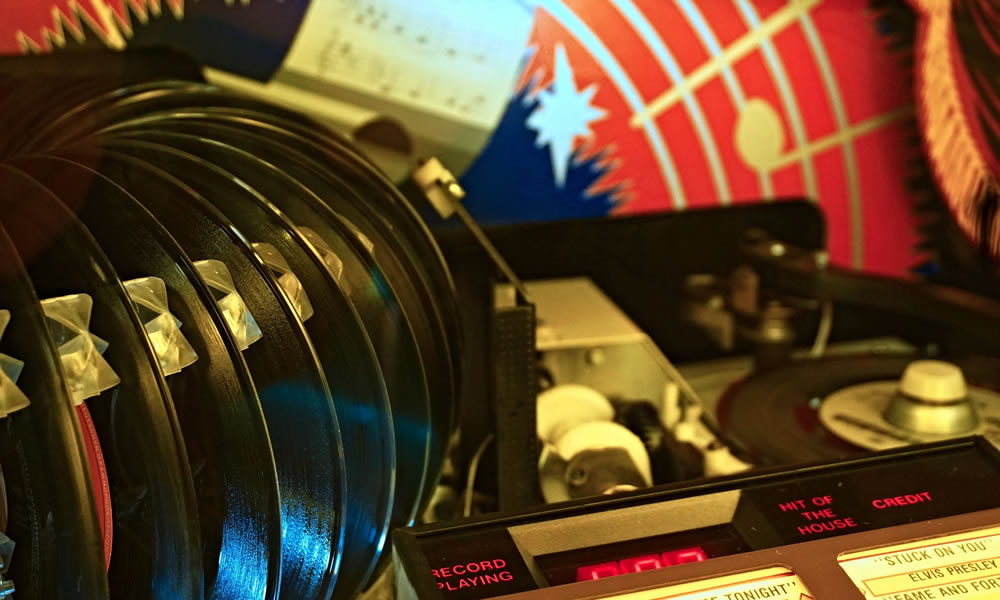
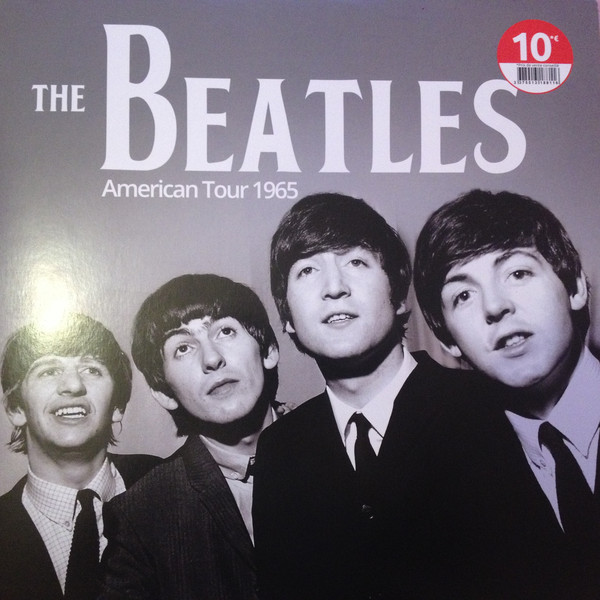
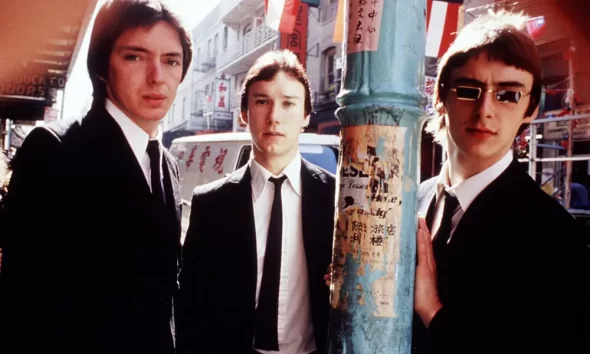
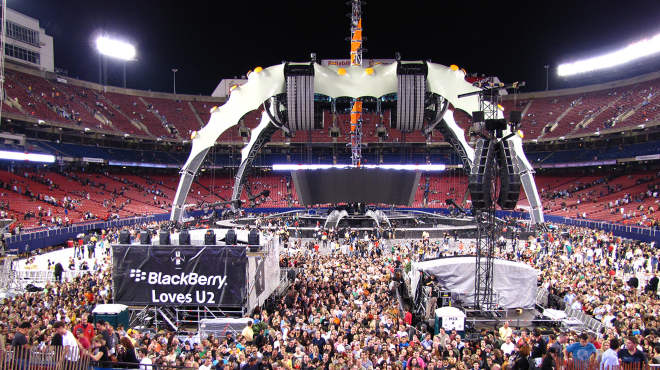
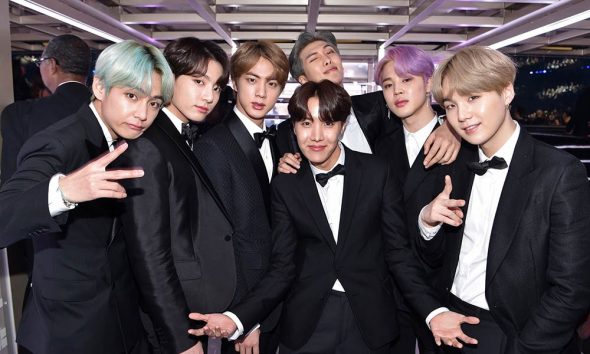
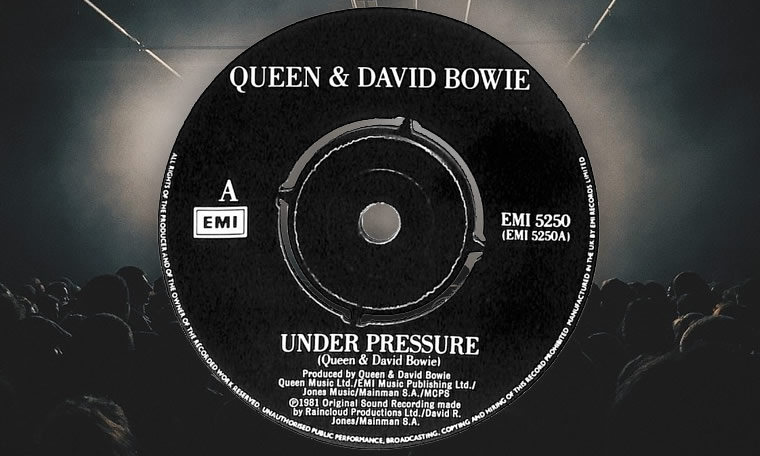


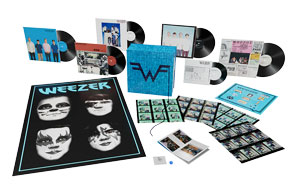
Rod Bebenek
February 3, 2020 at 5:57 am
Buddy Hollys music was a highlight in my life as well as music. when I got older I began to learn about the other two passengers that Buddy Holly flew with The Big Bopper and Ritchie Valens . Bopper was a radio personality and Ritchie Valens just started his short career playing gigs then became just a footnote . It’s great to see that their life’s continued long after they were perished , apparently if that didn’t happen none of us would know these people . I’m only 50 years old and Buddy Holly died in 1959 in February . I’m glad that I’ve looked in to these great artists , and know if it wasn’t for Buddy Holly there wouldn’t be a lot of other artists !
Laurie Flexhaug
February 3, 2020 at 4:41 pm
And because of this horrible crash Bobbie Vee got his start. I b believe he was 15 and sang in Fargo that night
Chuck Jeffrey
February 3, 2020 at 10:14 pm
I remember it as a kid in high school. Devistated. February 3 is always a sad day. Buddy would be 83 years old today. I always wonder how far he would have gone in the music world and how popular he would have become. Probably a giant liken Bob Dylan and the Beatles became as they were not far behind him in age.
Tim Paul
February 3, 2020 at 10:52 pm
I always stop and listen when I hear a Holly Song. When I traveled with bands in the 70s I was the back up giving the lead singers in the band a break in the night. I filled in with Buddy Holly Songs. Without a doubt he influenced rock n roll from the early days and all of this music created before the age of 22. The best was yet to be.
Richard Lindstedt
February 10, 2020 at 8:40 pm
I will never forget that night. On my way home from a date I was listening on my car radio to Cousin Brucie a NY City DJ. All of a sudden he stopped the music and announced that a plane crash in Clear Lake Iowa crashed and killed Buddy Holly, Ritchie Valens, and the Big Bopper. I had to stop along side the road and catch my breath, and shed a few tears. I was 19 years old and WILL NEVER FORGET.
Paul Bradley, Melbourne, Australia
February 13, 2020 at 3:51 am
I was at boarding School in Dhekalia, Cyprus aged just shy of 13. News was broken mid morning by senior student “Chalky” White (AKA ‘Wypit’) who remerged on my Sister-in-Law, Glenys’ radar as a RAF Air Traffic Controller in Germany in the 1980’s. Glenys was also at King Richard’s Boarding School in Dhekalia. Contrary to earlier opinion The Big Bopper (e.g. “Chantilly Lace”) and Ritchie Valens (“La Bamba”) were quite well known in their own right. The Big Bopper for his trade-mark (then unique) ‘gravelly’ voice which is easy to imitate and La Bamba is largely accepted as the ‘blueprint’ for the Beatles “Twist and Shout” (which some even considered to be a blatant rip-off, actually).
Patsy Peters
February 3, 2021 at 4:25 pm
Sorry 2 c great performers die so young due to an accident. Glad Waylon wasn’t on the plane.
Eugene F Rzeznik
May 27, 2021 at 1:40 pm
I was five years old at the time, was in a car full of guys. We were driving to get fitted for tuxedos for an upcoming wedding. I was the ring bearer. The news about Buddy Holly came blaring over the radio. Te rest of the trip was silent, all were shocked. My brother and cousin Bernie bought Buddy’s albums and played them almost daily after that.
Dave Malcolm
July 16, 2021 at 4:13 pm
Initial reports listed Waylon as one of those who died as he had given his wallet to JP to collect something from the Postal Service the following morning. Waylon was mentored by Holly and paid for his first Studio single release “Jolie Blon”
Waylon was haunted about his last conversation with Buddy prior to the flight and he lived with unnecessary grief until his own death in 2002
Many years after the crash, he wrote the Song “”A long time ago” which describes his own feelings about Holly, their last conversation and Buddy’s legacy.